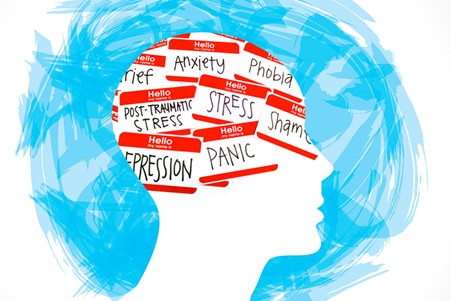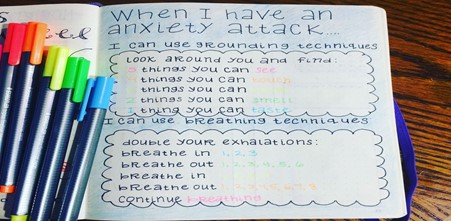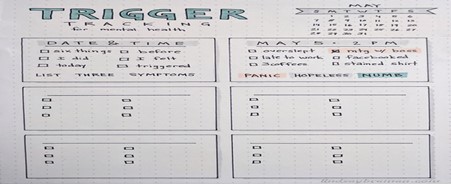Health is the greatest wealth any human possesses. Every single thing that we do revolves around our personal well-being. Besides general physical well-being, our mental health is the other critical factor that dictates our overall health and prosperity. Yet, different communities associate varied stigmas & taboos and harbored several misconceptions with the subject despite its critical nature. Such divisive and detrimental attitudes have led to a society that looks down upon people suffering from mental health issues.
Almost everywhere around the world, mental health disorders are controversial topics of discussion. Social norms and values followed across different cultures are implicitly inclined against the mentally unwell. The numbers reveal some appalling circumstances.
- The World Health Organization states that around 800,000 people commit suicide due to some underlying adverse mental health conditions.
- Widespread demographic changes have led to a 13% increase in mental health conditions and substance use disorders in the last decade (till 2017). 20% of the world's children and adolescents have a mental health condition, with suicide being the latest death cause among adolescents & young adults.
- Two of the USA's most common mental health conditions are depression and anxiety, which cost the US economy around $1 trillion each year.
- 1 in 25 in the US suffer from serious mental illnesses such as eating disorders, anxiety disorders, bipolar disorders, post-traumatic stress disorders, clinical depressions, etc.
Societal & self-stigmas, misconceptions, and reservations make things extremely difficult for those suffering from mental disorders. Mental health patients avoid discussing and seeking help for their conditions, worsening their problems further.
Here’s a look at some debilitating mental health conditions that wreak havoc with the lives of those afflicted.
Some Mental Health Problems & Their Destructive Effects
Mental health disorders are characterized by a range of abnormal thoughts, ideas, perceptions, notions, emotions, behavior. These thought processes, impulses, and notions damage their way of thinking, working, and relationships.
Some of the most common and prevalent mental health disorders include depression, dementia, borderline personality disorders, schizophrenia, developmental disorders such as autism, etc.
Here's a look at some of the most prevalent mental disorders afflicting the masses.
1. Depression is a major mental handicap and one of the leading causes behind suicides.
Sadness, lack of interest, general demotivation, guilt feelings, loss of self-worth & confidence, tiredness, and loss of appetite are the common symptoms of clinical depression.
2. Bipolar Disorders are signified by rapid mood swings, over-activity, irritability, panic attacks, and a distorted sense of self.
3. Schizophrenia is a severe mental disorder, and that affects more than 20 million people worldwide.
Distorted thinking, delusions & hallucinations, and abnormal thinking are the major symptoms of this disease. Schizophrenic individuals have a higher tendency to behave erratically and cause harm or inflict injury upon themselves or unto others.
4. Dementia is an age-related mental health condition characterized by memory loss, reduced concentration, general apathy, increased confusion, and loss of ability to do everyday tasks.
The intricate nature of these conditions and associated stigma pose serious challenges to the people suffering and their close ones. Writing mental heal journals are one of the best supporting tools in such cases.

The next section offers some potent tips to crafting effective and result-driven mental health journals that can be of great aid.
Mental Health Journals For Well-Being
Mental health journals and diaries can be the perfect companion for the mentally afflicted. They act as an excellent guide & reference and an effective support tool for those struggling with the execution of their mental impulses.
Mental health journals are best to keep track of and tackle any mental disorders. In a society that looks down upon mental health issues and
considers the subject taboo, these journals can be the perfect support mechanism for patients.
Following are some tips and guidelines for crafting a handy mental health journal.
1. Journaling is the method of keeping records. For mental health journals, it is important to keep track and monitor one’s mental conditions by date or by occurrence.
Keep track of any outbursts, events, or incidences where you realized your afflictions took hold and you lost control. Record your feelings, thoughts, and ideas during such occurrences. Please go through them when you find a chance to understand the triggers & symptoms better.
2. Writing a mental health journal requires being brutally honest about yourself and your conditions. This is a key requirement as the mental health journals are all about a person reflecting upon one's psyche.
Vent out your emotions, feelings, and experiences. Do not write just for its sake but add things that can educate the reader about your condition. Write in simple words and describe in detail.
3. Craft a visual journal if you can.
Create sketches and paint in your journal if you know how to relay your feelings. Visual journals are very effective in art therapy and counseling. Use colors and patterns to highlight patterns of occurrences and the nature of the triggers.
Anticipate the next occurrence proactively using the recorded information.

4. Record information instead of jotting down details.
It will help you note the most severe symptoms and devise the best possible remedies for them. Track your symptoms, take note of the
habits & tendencies, identify the triggers and control everything better using detailed records from your journal.
5. Write in a private place and a comfortable & relaxing environment.
Cut off all distractions while writing and take time to reflect upon the concerned events & incidences. If you are overcoming some trauma, do not force yourself to write about it unless you are sure that you can. When you do, write honestly and stay strong while dwelling on the details.
6. Investigate your thoughts & feelings.
Try to understand the triggers, relate your disorders with your behavior & track its source as closely as possible. If you lose focus or your emotions take over, then calm your mind with some mindful mediation and refocus yourself. Let nothing stop you from conducting in-depth introspection.
7. Use expressive language as much as possible.
Expressive journaling reduces the chances of intrusive thoughts, alleviates depressive symptoms, and has been found to reduce brooding & rumination, two major triggers of depression.
Express whatever comes to your mind regarding the situation or disorder. Do not worry about being wrong or having thoughts that
differ from the common person. Write them all down and keep on doing so until you feel better.

8. Carry out effective time management if possible.
Pick a suitable time when you can write it without any distractions or obstructions. Write diligently and stick to that writing routine every time.
9. Make your health journals a completely judgment-free zone.
Overcome self-pity and any stigmas that you associated with your mental disorders. Avoid emoting negatively, feeling any sense of guilt, and be honest.
It would help if you stayed resilient in the face of adverse mental health conditions. Face your fears and those raging disordered
impulses head-on with a positive & resilient mindset for the best results.
10. Write in a stream of consciousness if you are not sure about your feelings.
Lay down whatever comes to your mind in your journal, even if they don't make any sense. Record everything and go through them later on, to get an idea about your mental state during that time.
11. Release all your negative emotions and thoughts in your journals.
Mental health journals are some of the best ways to vent anger, frustration, sadness, jealousy, and other negative emotions. Face your conflicts, talk about your setbacks and strong negative emotions that are potential triggers. It might and probably will be hard for you to deal with these things in the first place. Stay strong and dwell on them.
When the time is right, use your journal to process your feelings and thoughts. It is the perfect tool that will help you understand and analyze those depressive thoughts, manic outbursts, rants, and mood swings.
Mental health journals are excellent support mechanisms for any individual. Journaling and expressive writing have been found to uplift moods, enhance self-esteem, reduce depressive symptoms, curb intrusive thoughts & avoidance symptoms, improve working memory, and drastically boost mental well-being.
So, face your fears, stay resilient and be brutally honest about your thoughts & feelings while journaling. Write your heart out and use your health journals to improve your mental state & attain inner peace.
All the best!
 Author bio: Karen Hamada is a psychology professor from a reputed university in New York, the USA. She is also a student psyche counselor at the institution and a part-time writer at MyAssignmenthelp.com, a leading digital academic writing service that offers comprehensive writing assistance, free online utilities like AI essay typer, paraphrasing tool, and much more.
Author bio: Karen Hamada is a psychology professor from a reputed university in New York, the USA. She is also a student psyche counselor at the institution and a part-time writer at MyAssignmenthelp.com, a leading digital academic writing service that offers comprehensive writing assistance, free online utilities like AI essay typer, paraphrasing tool, and much more.



Leave Comment